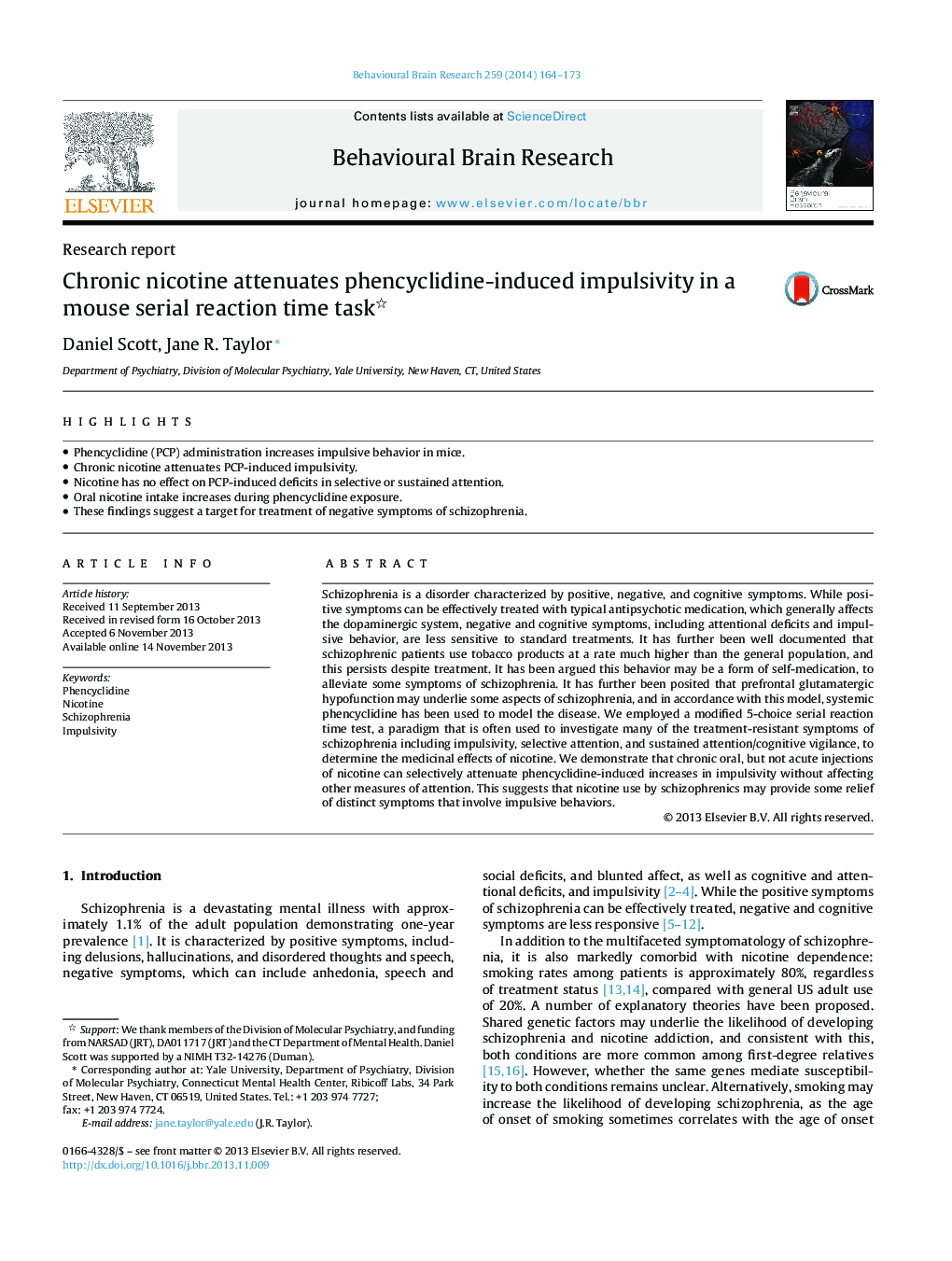| Article ID | Journal | Published Year | Pages | File Type |
|---|---|---|---|---|
| 6258572 | Behavioural Brain Research | 2014 | 10 Pages |
â¢Phencyclidine (PCP) administration increases impulsive behavior in mice.â¢Chronic nicotine attenuates PCP-induced impulsivity.â¢Nicotine has no effect on PCP-induced deficits in selective or sustained attention.â¢Oral nicotine intake increases during phencyclidine exposure.â¢These findings suggest a target for treatment of negative symptoms of schizophrenia.
Schizophrenia is a disorder characterized by positive, negative, and cognitive symptoms. While positive symptoms can be effectively treated with typical antipsychotic medication, which generally affects the dopaminergic system, negative and cognitive symptoms, including attentional deficits and impulsive behavior, are less sensitive to standard treatments. It has further been well documented that schizophrenic patients use tobacco products at a rate much higher than the general population, and this persists despite treatment. It has been argued this behavior may be a form of self-medication, to alleviate some symptoms of schizophrenia. It has further been posited that prefrontal glutamatergic hypofunction may underlie some aspects of schizophrenia, and in accordance with this model, systemic phencyclidine has been used to model the disease. We employed a modified 5-choice serial reaction time test, a paradigm that is often used to investigate many of the treatment-resistant symptoms of schizophrenia including impulsivity, selective attention, and sustained attention/cognitive vigilance, to determine the medicinal effects of nicotine. We demonstrate that chronic oral, but not acute injections of nicotine can selectively attenuate phencyclidine-induced increases in impulsivity without affecting other measures of attention. This suggests that nicotine use by schizophrenics may provide some relief of distinct symptoms that involve impulsive behaviors.
